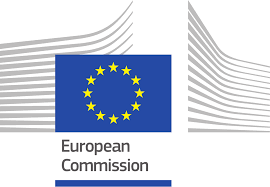PRESS RELEASE : European Pillar of Social Rights five years on – from principles to concrete action for a strong social Europe [November 2022]
The press release issued by the European Commission on 17 November 2022.
Today, the EU celebrates the fifth anniversary of the European Pillar of Social Rights, at the first European Employment & Social Rights Forum, taking stock of progress made, and looking ahead to what comes next.
Five years have passed after the proclamation of the European Pillar of Social Rights at the Gothenburg Social Summit in 2017 by the European Parliament, the Council and the Commission. Since then, this commitment has been reaffirmed at the 2021 Porto Social Summit by EU leaders, social partners and civil society organisations. The Commission has put forward more than 130 initiatives to implement the Pillar in the Member States and deliver a social Europe that is fair, inclusive and full of opportunities.
These initiatives range from pay transparency and equality between women and men, minimum wages and investment in skills, to combatting child poverty, minimum income, and protecting workers’ safety and health.
After a strong socio-economic recovery from the COVID-19 pandemic, the Pillar’s principles remain highly relevant in the current context, where many households are struggling to make ends meet, faced with increased prices exacerbated by Russia’s invasion of Ukraine.
Delivering on the European Pillar of Social Rights
In March 2021, the Commission presented the European Pillar of Social Rights Action Plan. To date, the large majority of the measures set out in the plan have already either been adopted or launched by the Commission. The Pillar’s 5th anniversary was celebrated at the first European Employment & Social Rights Forum in Brussels with, Commission President Ursula von der Leyen, former Commission President Jean-Claude Juncker, Commissioner Schmit, and many other distinguished guests.
EU governments have endorsed the EU 2030 social targets included in the Pillar Action Plan and presented their national contributions to reaching these targets. Combined, Member States’ commitments set the EU firmly on the path to achieving or even exceeding the EU-wide targets. The national targets are the outcome of an intensive consultation process by Member States, including internal consultations with key social actors like social partners, non-governmental organisations and local authorities.
The three EU-wide targets, to be achieved by 2030, are:
- At least 78% of people aged 20 to 64 should be in employment.
- At least 60% of all adults should participate in training every year.
- The number of people at risk of poverty or social exclusion should be reduced by at least 15 million, including at least 5 million children, compared to 2019.
Examples of initiatives taken to implement the Pillar – structured around its three main chapters on the labour market, working conditions and social inclusion – are:
Equal opportunities and access to the labour market
- The Pact for Skills is a unique platform of cooperation that brings together public and private organisations like businesses, training providers and chambers of commerce, committing to concrete training offers for workers across Europe. It has 1,000 members now, and it has already gathered pledges to help train 6 million people. The Pact is a central element of the European Skills Agenda.
- Member States have adopted Council Recommendations on Micro-credentials and on Individual Learning Accounts. The Commission has also proposed to make 2023 the European Year of Skills, giving a fresh impetus for investment in skills across the EU.
- Existing inequalities are addressed in the European Gender Equality Strategy and several other initiatives, including tackling women’s underrepresentation in the labour market and the gender pay gap with the proposal on pay transparency, new rules on gender balance on corporate boards and the new Directive on work-life balance for working parents.
- Furthermore, to strengthen the Union of Equality, the Commission put forward an Anti-Racism Action Plan 2020-2025, an LGBTIQ Equality Strategy, and an EU Roma strategic framework for equality, inclusion and participation and the first-ever EU Strategy on combating antisemitism and fostering Jewish life.
- The Strategy for the Rights of Persons with Disabilities 2021-2030 and the European Accessibility Act contribute to ensuring that persons with disabilities enjoy social inclusion and economic autonomy through employment, for example with the Disability Employment Package.
- To boost youth employment, the Commission presented a Youth Employment Support package in July 2020. This included an update of the Youth Guarantee, a Recommendation to make vocational education and training more modern, attractive, and flexible, and a renewed impetus for apprenticeships.
Fair working conditions
- The Directive for adequate minimum wages in the EU already entered into force and aims to ensure that work pays. The Directive creates a framework to improve the adequacy of minimum wages in countries with statutory minimum wages. It also aims to promote collective bargaining as well as better enforcement and monitoring in all Member States.
- The Commission proposal for a directive to improve the working conditions in platform work will ensure that people working through digital labour platforms can enjoy the labour rights and social benefits to which they are entitled. It will also support the sustainable growth of these platforms in the EU.
- EU strategic framework on health and safety at work 2021-2027 sets out the key actions needed to improve workers’ health and safety over the coming years. For instance, to effectively reduce exposure to asbestos, which can cause cancer, the Commission proposed to revise the Asbestos at Work Directive and introduce an even stricter occupational exposure limit to asbestos.
Social protection and inclusion
- The proposal for a Council Recommendation on adequate minimum income ensuring active inclusion calls on Member States to modernise their minimum income schemes to make them more effective, lifting people out of poverty, while promoting the labour market integration of those who can work. The Council has also adopted the Recommendation on ensuring a fair transition to climate neutrality.
- The European Care Strategy seeks to ensure quality, affordable and accessible care services across the EU and improve the situation for both care receivers and care givers. It includes proposals for Council Recommendations on the revision of the Barcelona targets on early childhood education and care, and on access to affordable high-quality long-term care.
- Member States adopted the Commission’s proposal for a European Child Guarantee. It aims to give children free and effective access to key services and promote equal opportunities for children at risk of poverty or social exclusion. The Commission also created the European Platform on Combatting Homelessness, which brings together Member States, cities and civil society to facilitate mutual learning, improve evidence and monitoring, and strengthen cooperation to combat homelessness throughout the EU.



